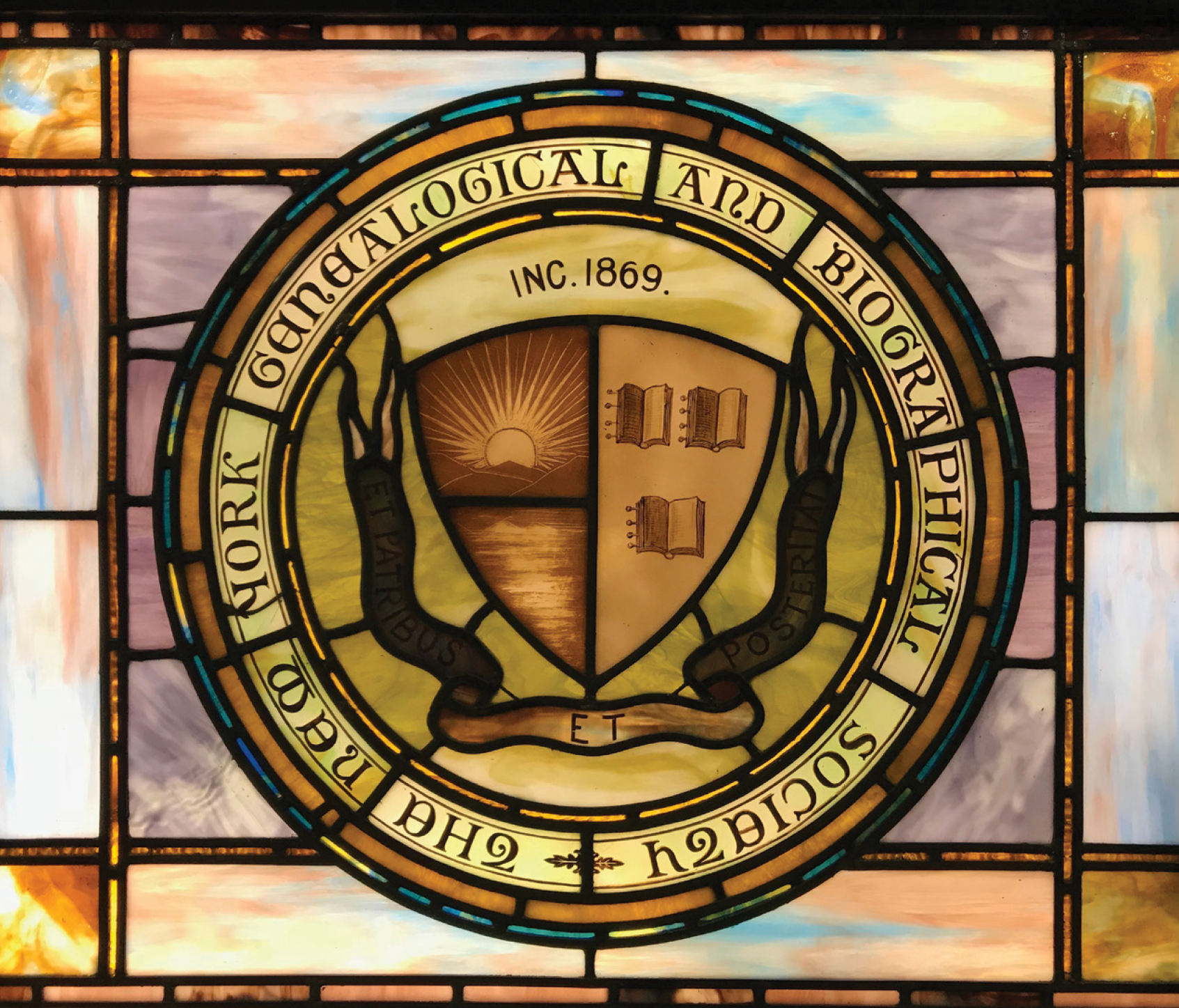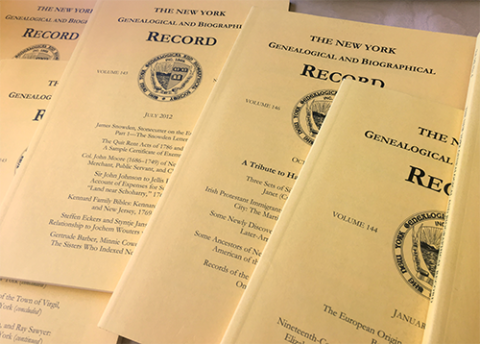The April issue of The New York Genealogical and Biographical Record is out and available for NYG&B members to read online.
The latest issue in Volume 151 is packed with useful and fascinating articles. This blog will preview each article in the issue and contains the full "Editor's View" column—a wonderful introduction to each issue written by Editor of The Record, Laura Murphy DeGrazia, CG, FGBS. Enjoy!
The Editor's View
Genealogists know the importance of viewing information with a critical eye. Rather than readily accepting what is found in any given source, they consider the person who provided the details. Was that person in a position to know the facts? Could something have caused that person to give inaccurate data, either deliberately or unintentionally? Does the information fit with evidence obtained from other sources and other informants? Whether genealogists are piecing together evidence from original sources to arrive at new conclusions or assessing assertions made by others, they question everything.
Author David A. Cory was curious about published information stating that his ancestor John Cory of seventeenth-century Southold, Long Island, was a Quaker. After seeing the statement in multiple publications, he set to work to trace its origin and to try to identify evidence supporting or refuting it. He analyzed original town records. He investigated John Cory as well as Cory’s associates, both friends and would-be enemies. He studied court records, laws, and Quaker record books, and he considered possible explanations before arriving at his own determination.
Louis G. Ogden and Brent M. Owen were interested in building on information in Matthew Wood’s “English Origins of the Mitchell, Wood, Lum, and Halstead Families,” published in The Record more than three decades ago. Working from his strong foundation, their questions led them through countless sixteenth- and seventeenth-century English records as they strove to learn more about Stamford pioneers Matthew Mitchell and Edmund Wood.
Irish-born New York City merchant William Hill is mentioned frequently in public records, and information about his alleged parents and geographic origins has been published before, but Jim Boulden wanted to know more. He discovered a cache of William’s personal papers and correspondence at Cornell University Library. Those papers, combined with findings in cemetery and church records, court records, deeds, mortgages, and newspapers, helped Boulden tell the story of William’s financial success and loss.
Genealogists know the importance of analyzing, probing, questioning, and searching. As Albert Einstein said, “The important thing is not to stop questioning. Curiosity has its own reason for existing.”
Laura Murphy DeGrazia, CG, FGBS Editor
Was John Cory of Seventeenth-Century Southold, Long Island, a Quaker?
Several accounts of John Cory—a weaver who lived in eastern Long Island in the 1600s—claim that he was a Quaker. David A. Cory, M.D. investigates the original assertion made by Charles B. Moore in 1868, which formed the basis for all subsequent claims about this man.
- Time period: 1600s
- Locations: Southold, New Haven Colony, Southampton (among others)
- Sources: Town records (among others)
Revisiting the Stamford Pioneers of Halifax Parish, Yorkshire West Riding, England
Louis G. Ogden and Brent M. Owen expand upon Matthew Wood’s 1989 Record article “English Origins of the Mitchell, Wood, Lum and Halstead Families,” which explored several of the pioneer families of Stamford. The two authors focus on Matthew Mitchell and Edmond Wood, two individuals from the group of families that originated in Halifax Parish.
- Time Period: 1500s, 1600s
- Locations: Thornton and Ovenden townships (Yorkshire West Riding, England)
- Sources: Parish registers, deeds, wills (among others)
William Hill (1751–1823) of Ireland and New York City
Jim Boulden details the life of Irish-born New York City merchant William Hill. Using Hill's personal papers and correspondence, Boulden tells a fascinating story of colonial and early-American business success and failure.
- Time Period: 1700s, 1800s
- Locations: New York City, Albany, Drumawillin (County Antrim, Ireland)
- Sources: Personal papers and correspondence, cemetery and church records, deeds, mortgages, and newspapers
Early Sicard–Secor Families of New York
R. Kirk Moulton traces all known members of the well-known Sicard-Secor family in colonial New York to a single ancestor—a Huguenot who fled France due to religious persecution. This installment is part six of a serialized article:
The portion in this article continues the genealogical summary.
- Time Period: 1700s, 1800s
- Locations: Rockland County, Westchester County, Orange County (among others)
- Sources: A wide variety of original records
Bookstore Receipt Book, 1804–1816, of John C. Totten, Printer, of New York City (concluded)
Michael R. Britten-Kelly has contributed abstracts from the records of this early-nineteenth-century printer, who was also active in the Methodist movement.
These transcriptions have been published in installments:
A biographical sketch and general introduction in part one.
- Time Period: 1804–1816
- Location: New York City
- Sources: This article contains transcriptions of original historical records
More Online Resources
-
NYG&B Online Collections (beta)
-
New York Genealogy Essentials: Free Articles and Subject Guides
-
NYG&B Webinar Library: Recorded Webinars for NYG&B Members
-
Index From Home: The New York Land Records Project
About the New York Genealogical and Biographical Society

a registered 501(c)(3) organization devoted to
preserving, documenting, and sharing the history of
New York State families. Read more about our mission.
Since 1869, our mission has been to help our thousands of worldwide members discover their family's New York story, and there has never been a better time to join.
The cost of an Individual Annual Membership is less than six dollars a month, and includes the following benefits:
- Access to over 50 exclusive digital record sets covering the entire state of New York, including the fully searchable archives of The Record.
- A complimentary subscription to all of Findmypast's North American records, as well as U.K. and Irish Census records.
- Access to hundreds of expert-authored Knowledge Base articles and webinars to help you navigate the tricky New York research landscape.
- Exclusive discounts and advanced access to conferences, seminars, workshops and lectures to learn more about researching people and places across New York State.
To learn more or join us, please visit our member benefits page.
